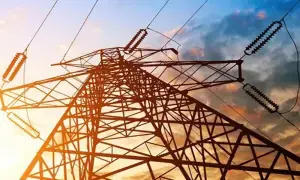Pakistan seeks debt relief from China, requests 8-year loan repayment extension
5 min readPakistan’s Finance Minister Muhammad Aurangzeb has sought an 8-year extension on the repayment period for loans related to the China-Pakistan Economic Corridor (CPEC) and the energy sector.
Aurangzeb held meetings with Chinese officials to request an extension on loan repayments.
The total loans for CPEC and nuclear power plant projects amount to around $17 billion.
Pakistan is negotiating with China to not only extend the loan repayment period but also reduce the interest rate on these loans.
If China approves Pakistan’s request, it could result in a 6-7 rupee per unit reduction in electricity prices in Pakistan.
The electricity tariff from Chinese power plants could also decrease by 3-4 rupees per unit.
If Pakistan’s request is approved, it could lead to a 5% overall reduction in the cost of the loans.
Pakistan has to make over $2 billion in loan repayments for the energy sector, which it is seeking to defer given the economic difficulties.
Chinese companies have stated that they are not considering renegotiating the existing power purchase contracts.
The developments come as Pakistan’s energy sector debt is mounts mainly due to capacity payments to power generation companies. Reports indicate Pakistan pays billions of rupees without consuming electricity.
According to the Express Tribune report, representatives from three major Chinese companies have said that the decision on whether to restructure the energy debt should be left to negotiations between the Chinese banks and the Pakistani authorities.
The Chinese companies themselves have not indicated a willingness to renegotiate the existing power purchase contracts.
The representatives of three major Chinese companies have stated that they are not willing to renegotiate the terms and conditions of their own power purchase agreements with Pakistan, which cover aspects like their profits and “idle capacity payments” that were previously negotiated.
However, the Pakistani government is seeking concessions from the Chinese authorities on the energy debt that was taken to set up the nuclear power plants and the CPEC energy projects, specifically requesting an extension of up to 8 years on the repayment of this energy debt, changing the lending currency from US dollars to Chinese yuan, and seeking a reduction in the interest rates on this debt.
If the Chinese authorities agree to these concessions, it could potentially lead to a reduction of Rs 6-7 per unit in electricity prices in Pakistan, with the impact from just the Chinese power plants under CPEC being a reduction of Rs 3-4 per unit.
“The 2014 power policy is the foundation of our investment in Pakistan,” the Chinese representative said.
“The core issue was uncontrolled and high line losses, theft and low recoveries. The Chinese companies should not be blamed for the higher energy prices, as our cost of electricity is still cheaper than the government-owned power plants being run on the LNG,” they further added.
“Even though we have been paid in the local currency, the money stayed in Pakistan and due to currency depreciation our profits have been eroded,” they said.
According to a representative of one of the largest Chinese power plants, the energy companies themselves cannot decide on the restructuring of the debt. Any such decision would have to be taken by the banks and the Chinese state-owned export credit agency, Sinosure, which provides insurance for these loans.
The representative stated that “it is meaningless whether or not the energy companies will agree to any proposal to renegotiate the terms” of the existing energy deals. The implication is that the ultimate decision-making power lies with the Chinese financial institutions and Sinosure, not the power generation companies themselves.
The Pakistani Finance Minister is traveling to meet with Chinese authorities to negotiate these requested changes to the energy debt repayment terms.
Pakistan is seeking to convert the interest instruments on the energy debt from the Secured Overnight Financing Rate (SOFR) to the Shanghai Interbank Offered Rate (SHIBOR). Additionally, they are requesting a reduction in the interest rate spread over and above the SOFR or SHIBOR. Together, these changes could cumulatively reduce the cost of the debt by around 5%, according to the sources.
Furthermore, the government is seeking to extend the existing 10-year repayment period for the energy debt by an additional 5 to 8 years. This would spread the cost of the debt in the energy tariff over a total period of 18 years.
In the current fiscal year, Pakistan is scheduled to make over $2 billion in energy debt repayments to China. Pakistan is seeking to postpone these repayments in order to get relief during the current distressed economic times. The energy debt also includes loans taken to set up nuclear power plants with Chinese assistance, and Pakistan is seeking an extension on these loans as well.
The government has notified a new average electricity price of Rs 33 per unit, effective from July. Out of this, over Rs 18 per unit is due to “idle capacity payments” made under the Power Purchase Agreements (PPAs).
There is growing pressure from industrialists and residential consumers to renegotiate these PPAs in order to avoid the high idle capacity payments. However, the government itself is the major beneficiary of these idle capacity payments, followed by the Chinese power plants.
Executives from major Chinese power plants set up under CPEC, such as Sahiwal, Port Qasim and China-Hubco, have stated that the “take or pay” conditions in the PPAs are based on the 2014 energy policy, and cannot be reopened.
A Chinese executive commented that most countries buy electricity on a “take or pay” basis, and foreign investors would not be interested in setting up power plants in Pakistan on a “take and pay” basis instead.
Read more
Pakistan to replace solar net metering with gross metering: report
Here is what PM Shehbaz hopes to achieve during his China trip
For the latest news, follow us on Twitter @Aaj_Urdu. We are also on Facebook, Instagram and YouTube.


























Comments are closed on this story.